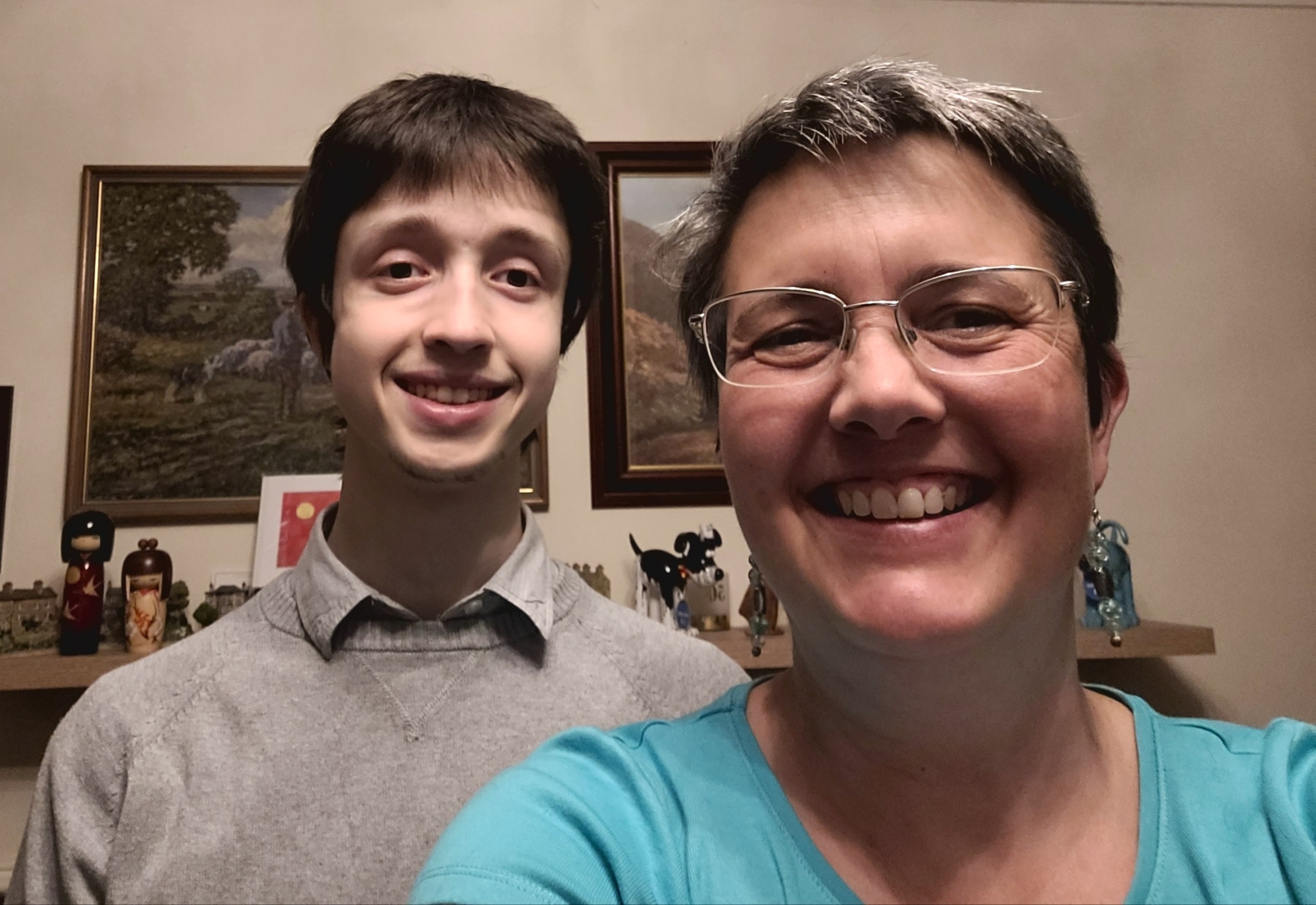This guest blog post is written by Lynnette and Kieran Peckett, exploring the important subject of young people transitioning from church youth work to more adult focussed church services.
There comes a time in a child’s life when they have to leave the youth group on a Sunday and start going to ‘adult’ church services. This can be hard for any child, but having additional needs can often make it more difficult. Our son, Kieran, is 22 and has Aspergers. He was helped in a variety of ways which actually started long before he was given his diagnosis.
Sound
He was 13 years old and we were one year into a four year journey with CAMHS (Child and Adolescent Mental Health Service) to get a diagnosis. He’s always had a huge interest in anything to do with technology and this was spotted by the person who led the tech team at church. He asked Kieran if he would like to be trained to use the sound desk and as expected Kieran said “Yes”.
Every time the team leader was on the rota to do sound (approximately every 3-4 weeks), Kieran would sit with him and watch what he was doing before heading off to his youth group partway through the service. Over time he gradually started to be in control of the sound desk, with the team leader watching & helping him. When he was confident to do so, he took full control, although initially only for the first part of the service. It wasn’t long before he was doing sound for the entire service once a month and became a key member of the tech team. By doing the sound, Kieran started to feel more comfortable in the church service
Youth Group
As he approached his 18th birthday, Kieran was given the option by the Youth Worker that he could stay in the youth group on a Sunday until he felt ready to move into the church service. This really helped as there wasn’t a set date by which he had to leave the group, so he felt more in control. He also felt that those in the group knew him and understood him, so he felt much more comfortable in their company. Although some adults in the church occasionally spoke to him, he felt they didn’t know him as well as his peers. This initially made the transfer to being in the church service a difficult decision.
Junior Church
One Sunday a month the different children’s groups met together in what was known as Junior Church. The older teens were expected to stay in the church service, but Kieran was asked to help with any tech that was needed for the group. He enjoyed doing this and helped the Families Worker to have a working microphone, find music videos to play and putting resources for the stories and a visual timetable on the screen.
In a typical month he would have two weeks sat in the congregation, one week on the sound desk and one week helping junior church. This allowed him to ease gently into church services.
Puppets
From about the age of 12, Kieran has helped his Dad with the puppets at various church events. This has helped him use his gifts for the church and gain confidence. It also gave church folk something that they could talk to him about, especially a lot of the older folk who didn’t always understand about technology (Kieran’s favourite topic to talk about!). As a result, they got to know him more and he felt more involved in church.
We’ve now moved to a new church and it didn’t take them long to discover Kieran’s gifts. He’s now on the tech team, which recently has also involved helping with live streaming and editing online services, both new experiences for Kieran. They’ve also discovered that he and his dad do puppets, so Peckett Puppets have also been involved in online church services these last few months.
And finally….. a few thoughts from Kieran!
- Adults are preached to. Unlike the youth group, there’s not normally any discussion within the church service.
- You need to learn to process what you’re hearing. This is another big change from youth group where the leaders help to explain.
- There are no activities in the church service which can help you understand (again, another big change).
- There is no one available during the service to help you understand.
- You can talk to the preacher afterwards, but some people may find that difficult. Also, if everyone did this there wouldn’t be enough time!
- For discussion, adults are expected to go to small groups during the week. This can also be difficult for some people.
- For me it was nice having one person who was an expert in the sound system train me in how to use it. However, in our new church I was trained by a few different people, which also had its benefits. I think it depends on the person, both the trainer and trainee, as to the most suitable method for providing the training.
From our experience, finding a young person’s gifts and encouraging them to use them within the church can be an important step towards making the transition to adult church easier. Also allowing the young person to have a say in when they move on from the youth group is a big help.
Lynnette Peckett, with input from Kieran Peckett



Really excellent and much needed post- much needed by vicars, pastors, and any others who lead or decide how things are done in a church! I loved Kieran’s in-put. And, truth to tell, it could well be applied to youngsters without any special needs – there are often ones who are a bit shy or hesitant, and many who would agree that being ‘preached to’ is “boring” because there is no in-put and no discussion! Many youngsters leave church at this point. We should ask them why: the passivity of adult worship after youth group styles, is possibly one answer. Reading this I thought how our sons, though not Aspergers, would’ve adored helping with the techie side…
LikeLiked by 1 person
Unfortunately not all churches have the foresight or knowledge of how to include those with ‘different’ abilities but some do and that is to be commended. Thank you for your post I would add that it would be helpful to the individual if those in the fellowship could be encouraged to ‘get alongside’ them as friends. Too often they are accepted but largely ignored which is a great sadness and not included or invited in ‘outings’ outside of the fellowships by members. It’s as if they aren’t seen.
LikeLiked by 1 person
Transition is such a big thing for my boys and the preparation and plan to support transitions makes all the difference.
LikeLiked by 1 person